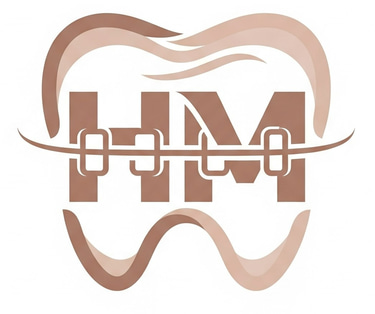Frequently asked questions
What is orthodontics?
Orthodontics is the movement of teeth into more favourable positions. This can be for cosmetic and/or functional benefit.
What is involved in orthodontic treatment?
The movement of teeth using different methods such as fixed braces or aligners. It can take anywhere from 6 - 24months depending on the severity of the case.
How much does it cost?
My pricing varies depending on the severity of the case and the method used to treat. Generally orthodontic treatment ranges from £2500-5000. I offer a variety of payment plans including interest free options.
If I don't like the shape of my teeth, will orthodontic treatment help?
It can't change the shape of your teeth but usually the position of the teeth changes their perspective and can make them look mis-shapen. Once aligned, composite bonding or veneers could be used to alter tooth shape if required. I rarely place restorations after orthodontic treatment unless I am restoring uneven wear.
Will I always be seen by you?
Throughout your treatment you will be seen by myself. On the rare occasion you have an emergency, you may see one of my colleagues.
How often will I be seen?
I review all of my patients in person between every 4 and 8 weeks. Some clinicians offer remote check-ins, however, I believe some key details cannot be picked up on self-submitted photographs.
Can I just treat my top OR bottom teeth?
This is sometimes possible. Most of the time the issues on one arch are reflected or because of the problems in the opposing arch. Treating one arch does not usually make any difference to the costs involved.
Will I need teeth extracted?
This is something that is unique to each case. It depends on the amount of crowding and how the teeth are positioned in the jaw.
Fixed Brace FAQs
Do you offer ceramic braces?
I do not and there are a couple of reasons why:
They may be clear when placed but they pick up stain very easily.
They are difficult to remove, they tend to shatter.
Are fixed braces the best treatment method?
Fixed braces are very efficient because their forces are constantly being applied to the teeth. There are certain movements that fixed braces do better than aligners, however, there are also movements that aligners excel in. This is why I generally advise which method is best on a case by case basis.
Are fixed braces quicker?
Generally fixed braces are more efficient. This is due to their mechanics, but also the logistics of getting the aligners made and shipped.
Do fixed braces hurt?
Like all orthodontic treatment, there can sometimes be mild discomfort. This usually settles down a few days after adjustments ("tightening").
BLANK
You can reach us by [phone number/email address/contact form link]. We are always happy to answer your questions.
Aligner FAQs
What are aligners?
Aligners are sets of plastic trays that move teeth gradually. They are changed by you at home every 7-14 days. They need to be worn for 22hrs per day and must be removed for eating and drinking anything other than water.
Are aligners completely invisible?
Although they are not as obvious as fixed braces, they can still be seen from certain angles and distances. To help the aligners move the teeth, composite shapes will be placed on the teeth (attachments) and these do make the aligners less discreet.
Can teenagers have aligners?
Teenagers can have aligners. There is a greater amount of responsibility compared to fixed braces as your teen will need to remember to remove and reinsert the aligners throughout the day.
Does aligner treatment hurt?
Like all orthodontic treatment, there can sometimes be mild discomfort. This usually settles down a few days after putting in the new aligner set.
Are Invisalign the only aligner brand?
Invisalign is a solid product with great marketing and that is why it is the most recognised aligner brand. Most of the time I use Invisalign for my aligner cases but sometimes pay-per-aligner systems may be more suitable and cost effective for you as the patient.
Marshall Orthodontics
Orthodontic treatments for all ages available.
© 2025. All rights reserved.
